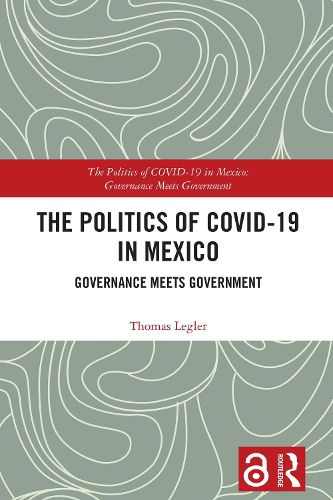Readings Newsletter
Become a Readings Member to make your shopping experience even easier.
Sign in or sign up for free!
You’re not far away from qualifying for FREE standard shipping within Australia
You’ve qualified for FREE standard shipping within Australia
The cart is loading…






This book evaluates the factors behind Mexico's painful experience with the Covid-19 crisis, a country that ranked fifth in the world for the number of deaths caused by the virus. Through a series of vignettes, its authors point to pandemic politics as the culprit. With a focus on the nexus of global governance and government in the Mexican case, they underline the politicized nature of domestic, international, and transnational responses to the pandemic. The chapters analyse the multiple political dimensions that affected the ability of intergovernmental and governmental authorities to construct timely, effective, and equitable health security against the COVID virus, including symbolic politics, medical populism, global political economy, disease diplomacy, epistemic communities, and federalism. This volume builds an interdisciplinary analysis of the politics of pandemic governance bridging political science, international relations, public policy and public administration, and public health.
The Open Access version of this book, available at http://www.taylorfrancis.com, has been made available under a Creative Commons Attribution-Non Commercial-No Derivatives (CC-BY-NC-ND) 4.0 license.
$9.00 standard shipping within Australia
FREE standard shipping within Australia for orders over $100.00
Express & International shipping calculated at checkout
This book evaluates the factors behind Mexico's painful experience with the Covid-19 crisis, a country that ranked fifth in the world for the number of deaths caused by the virus. Through a series of vignettes, its authors point to pandemic politics as the culprit. With a focus on the nexus of global governance and government in the Mexican case, they underline the politicized nature of domestic, international, and transnational responses to the pandemic. The chapters analyse the multiple political dimensions that affected the ability of intergovernmental and governmental authorities to construct timely, effective, and equitable health security against the COVID virus, including symbolic politics, medical populism, global political economy, disease diplomacy, epistemic communities, and federalism. This volume builds an interdisciplinary analysis of the politics of pandemic governance bridging political science, international relations, public policy and public administration, and public health.
The Open Access version of this book, available at http://www.taylorfrancis.com, has been made available under a Creative Commons Attribution-Non Commercial-No Derivatives (CC-BY-NC-ND) 4.0 license.